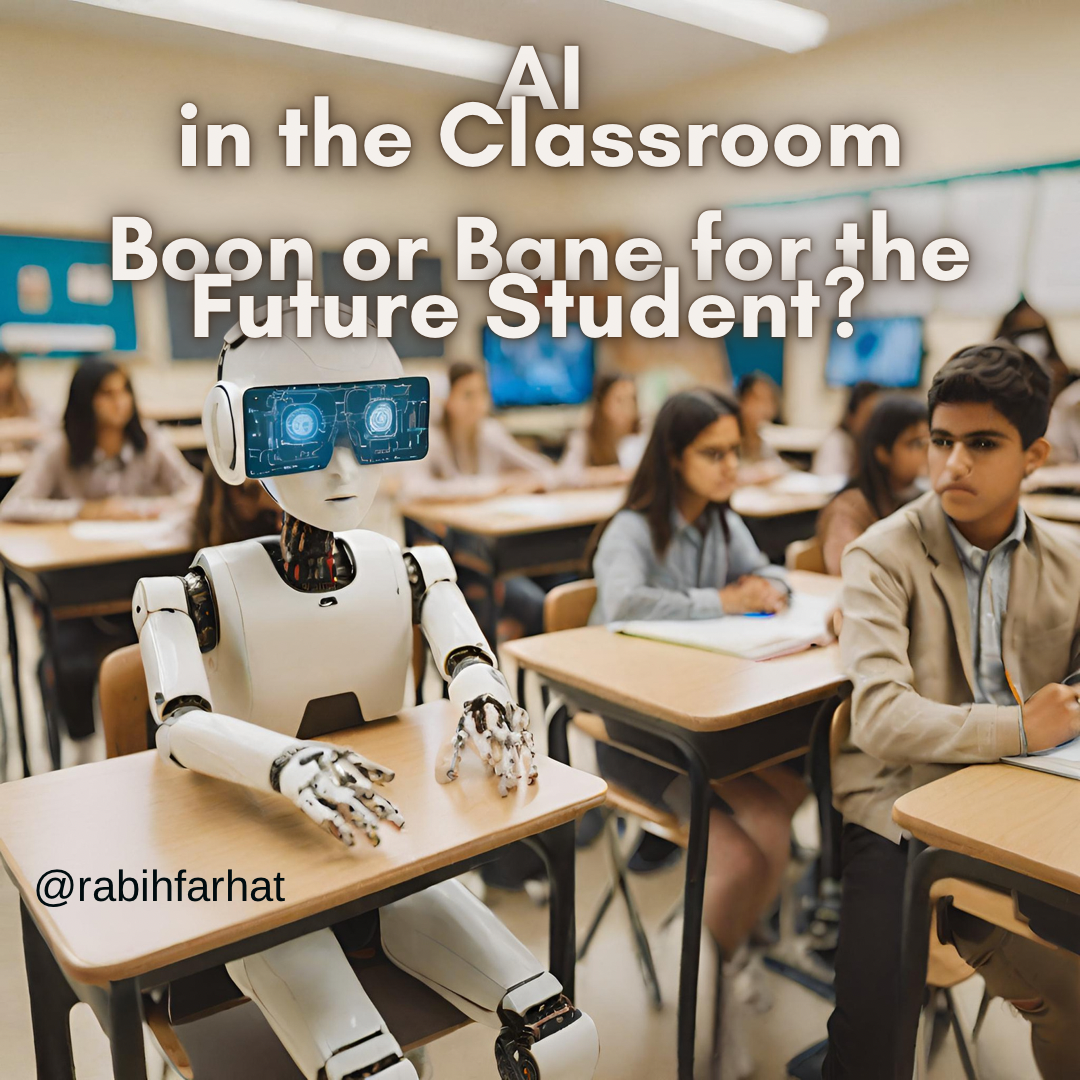Introduction
After the technical boom represented by artificial intelligence and its uses, a very pressing and important question emerged related to its use in the educational and pedagogical process, which led to asking a fundamental question:
Will artificial intelligence make future students more lazy and stupid?
This question is justified.
Does artificial intelligence technology promote intellectual laziness? Or will it stimulate and create a new era of innovative learning?
To get it right we need to know the ways in which AI intersects with our current educational landscape and its potential future implications.
So let's analyze this question together.

Artificial intelligence has transformed from a specialized concept to a part present in every detail of our lives. Our classrooms, whether in-person or virtual, are no longer immune to the artificial intelligence revolution. For example, we now have AI-based personal learning assistants, intelligent tutoring systems, intelligent content development tools, etc.
Artificial intelligence have made learning accessible regardless of any barriers. It also freed teachers from the monotony of some tasks, allowing them to focus on developing a dynamic and engaging learning environment.
This brings us to the question... Enhancing intelligence or breeding laziness?
One major concern expressed by skeptics is that students may become entirely dependent on AI, leading to intellectual laziness.
This takes us to another question…
Was technological development in the service of knowledge and learning, or vice versa?
This discussion occurred before now with the invention of the calculator, computer, Internet, and smart phones, as every time this discussion surfaced regarding human’s dependence on the machine and moving us away from intellectual processes.
The human mind is a creative mind, and in every technological achievement it was used as a tool for cognitive development. Therefore, we can consider the current boom as an extension of the previous ones, so the problem is not with the technology but how we are using it.Calculators have not “deceived” Math students and the Internet has not made researchers less rigorous, also smartphones have not turned us into mindless zombies (as the old generation accuse us). But they have all changed the way we approach the tasks. And the same is likely to apply to artificial intelligence in education.It is not about replacing the human mind, but enhancing it.
The ability for AI to revolutionize education is really big, with more focus on enhancing skills needed for the near future. It can help promote creativity, problem-solving, and digital literacy, and can encourage students to actively engage with content, experiment, learn and grow.
The answer to our main question depends largely on how AI is managed in education. We must ensure that AI is not a crutch for students, but a tool that encourages active learning and critical thinking. We must focus on promoting ethics and teaching students how to use AI responsibly, and navigating a world mixed with advanced technology.
Conclusion
So, will artificial intelligence make future students dumber?On the contrary. When appropriately managed and supervised, with well-designed learning strategies, AI has the potential to fundamentally enhance traditional learning methods.
This revolution is ready to build a new generation of learners who are more adaptable, and equipped with the needed skills and knowledge. They are the ones who can collaborate effectively in a digital world.
Balancing between human intelligence and artificial intelligence is the key to the success of AI in education, so it’s not about technology itself, where teachers remain the most important element in this equation, evolving from traditional educators into mentors who can guide the use of AI in ways that truly enhance learning habits in students.
Artificial Intelligence can really offer a valuable opportunity for development and creativity.
Posted Using InLeo Alpha
AI in the classroom would really enhance learning but the students would have to be put through an ethical use so as not to dampen their creativity.
Everything is improving so why not improving education also since
It’s the key for the success of any community. Thanks for passing by fren
I think AI is just like any other tool and its benefit or harm depends upon one's intention and use. People have vastly different strengths and learning styles, and I believe if used and managed intentionally and compassionately, AI can bring a tremendous amount of good.